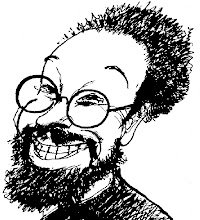When I walked into my local Starbucks the other day, I nodded at a black man sitting at a table by the window. After a moment, he nodded back. There was something, well, off, in his acknowledgment, so I looked at him and the man he was sitting with more closely. They were, I realized, Somali or Ethiopian. I felt a little chagrined.
No wonder he'd looked at me strangely: It was a black thing, and he hadn't understood.
I don't know where this custom of African-Americans acknowledging each other in public--even when they don't know one another--came from. As a boy growing up in a Washington, D.C., where men still wore hats and women still sometimes wore gloves when they went out, I thought it was simple good manners. Those same manners, and a sense of racial self-worth, also meant black men and women who'd known each other for years would address one another as "Mr." and "Mrs.," granting one another courtesy titles whites did not.
And perhaps it was just Southern good manners, as most blacks who live in the North came from the South. But I think that obligation of recognition (which, sad to say, doesn't seem to exist anymore) was also part of what James Weldon Johnson called "the freemasonry of the race." It's similar, I think, to the way Jews of a certain era called each other landsman. Or the phenomenon of two Americans--of any race--encountering one another overseas. Just hearing American English when you've been struggling with French evokes a sense of kinship. At least when it doesn't send you running the other way.
Of course, the man in the Starbucks knew nothing of that. And as I said, I felt chagrined, though not as embarrassed as the time, coming out of the movie "Kung Fu Panda 2" (I've got a 10-year-old; what else can I say?), I asked an Asian woman what the Chinese characters that had appeared in one scene meant.
"I'm sorry," she said. "I'm Korean. I don't speak Chinese."
Sunday, September 18, 2011
Subscribe to:
Post Comments (Atom)

No comments:
Post a Comment